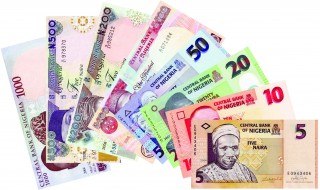“Dear customer, kindly note that effective October 18, 2016, your ability to carry out transactions priced in foreign currency using our naira debit and credit cards will be suspended. We apologise for any inconvenience in this regard,” said Stanbic IBTC Bank in a text message to its customers on Friday. Stanbic is just one of many banks that have suspended the use of Automated Teller Machine (ATM) card services and online transactions denominated in foreign currencies. This decision comes as dollar scarcity in Nigeria continues to hit the economy adversely. As the exchange rate crisis takes on this new dimension, foreign students will find themselves on the wrong end of the stick once again.
Withdrawal limits for foreign transactions have been reducing since 2015. In August last year, the Central Bank of Nigeria directed that the daily withdrawal limit on naira cards abroad be set at $300. Several banks have now imposed a daily limit of $100 as the battle to defend the naira continues. In a message circulated to customers, GT Bank stated that it had imposed a spending limit (in addition to the withdrawal limit) of $100 replacing its previous monthly limit to $250. With the new spending limits, not only it is difficult and expensive to source Forex, but it has also become difficult to access foreign currency outside the country.Things have gradually gone from bad to worse for Nigerians studying abroad since global oil prices began to crash in 2014. Earlier in March President Muhammadu Buhari ruled out
Things have gradually gone from bad to worse for Nigerians studying abroad since global oil prices began to crash in 2014. Earlier in March, President Muhammadu Buhari ruled out foreign exchange for Nigerian students abroad, saying that the country just could not afford to allocate foreign exchange for those who decided to train their children abroad. Also, personal and business travel allowances once offered by banks have become more and more difficult to access. These services provide travellers the opportunity to access Forex (up to a maximum amount) at a lower rate than the parallel market. Recently, however, applicants for these services fail to receive any allocation and the fortunate ones that receive allocations often have to endure a long wait and seldom receive their full request amount. This has meant that local sponsors or parents of foreign students had to look to the parallel market to source for hard currency.
Rates in the parallel market are materially higher than those allocated by the Central Bank of Nigeria and the diversion of demand to the parallel market only serves to widen the disparity, making fees and monthly stipend obligations more costly. Tuition fees that for example previously cost 1,500,000 have tripled to 4,500,0000. As a result, Nigerians overseas, as well as their sponsors, have had to make serious cuts. This could mean that they are forced to take out extra jobs, reduce spending on weekly dietary needs and more while balancing their education. In many cases, these sacrifices have not been sufficient to make ends meet leading to a reverse mass exodus of these students.
While foreign education in the depth of a recession may be seen as a luxury, all expendable concessions need to be exhausted and loopholes tightened before imposing additional costs on those in the diaspora. Behind policies and bank limits are Nigerian families and students who are experiencing severe difficulties.








